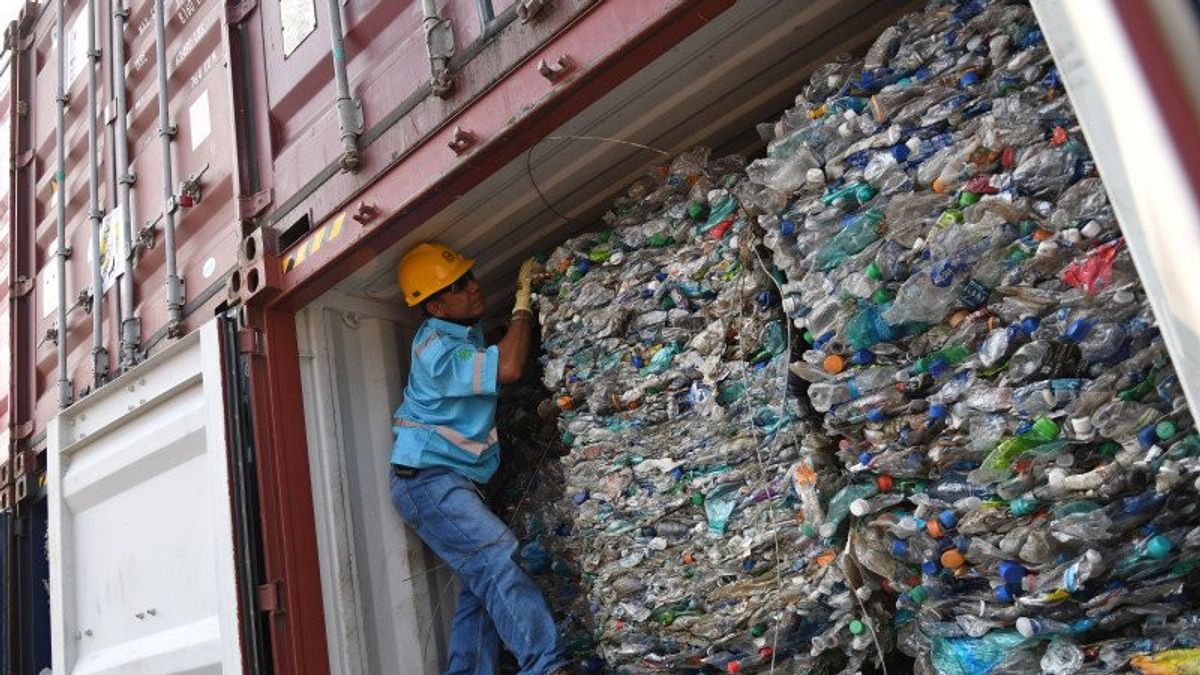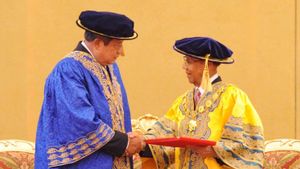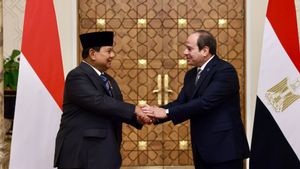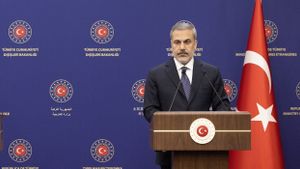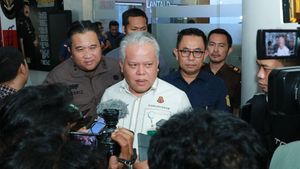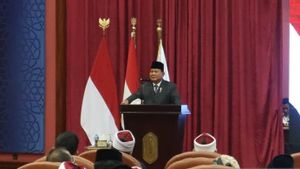JAKARTA - Today, three years ago, August 27, 2019, President Jokowi asked that the handling of imports of waste and waste from developed countries be taken seriously. He conveyed this view at a limited meeting at the Bogor Presidential Palace.
Jokowi does not want Indonesia to be like a trash can from developed countries. Even if you want to manage waste, Indonesia's top priority is to manage domestic waste. Because, if you rely solely on imports from abroad, Indonesia's environment can be damaged.
Regarding plastic waste, it is often a big problem for Indonesia. The power of self-aware if the management of plastic waste is far from optimal. What's the policy? This fact is exacerbated by Indonesia's predicate as one of the countries that produce plastic waste pollution in the world's largest oceans.
Surprisingly, the agenda for importing garbage from developed countries continues. The waste business is considered profitable by some domestic entrepreneurs. The lure of big profits obtained from developed countries are the estuary.
Problems arise. Import waste in fact not all is successfully recycled. Many of them are only accommodated just to earn money. The Indonesian government was furious.
In mid-July 2019, the government immediately returned 49 containers containing plastic waste to its home country (American America, Germany, to France). The problem also reached President Jokowi's ears. The number one person in Indonesia criticized the import of garbage from the country advanced.
This increase in imports of waste and waste must really be handled carefully. On the one hand, imports, especially paper and plastic scrubs, can be used to meet the needs of industrial raw materials but on the other hand, the large amount of waste and waste entering Indonesia will have the potential to damage the environment if the waste or waste cannot be recycled. And even more dangerous is contaminated by toxic hazardous materials or B3 which is dangerous for the community," said Jokowi in a limited meeting as quoted by the Cabinet Secretariat website.
Jokowi immediately asked his staff to take the problem of importing garbage seriously. Jokowi appealed to relevant agencies to focus on managing domestic waste first, rather than forcing plastic waste management from developed countries.
Every time there is a violation in the field, Jokowi wants his staff to take firm action immediately. Moreover, the problem of importing garbage if allowed continuously, without strong regulations, the Indonesian environment could be a victim.
Therefore, control measures must be taken. First, we must maximize the potential of waste in the country first for the needs of our industrial raw materials. Second, the regulations needed to improve the management of waste imports and waste are really accelerated.
Then the third, as well as strict enforcement of rules and supervision as strictly as possible for imports of waste and waste entering Indonesia, and decisive steps must also be taken if there are violations in the field. I think this coordination between related ministers is very necessary so that there are no differences in views that hinder the handling of imports of waste and waste," added President Jokowi.
The English, Chinese, Japanese, Arabic, and French versions are automatically generated by the AI. So there may still be inaccuracies in translating, please always see Indonesian as our main language. (system supported by DigitalSiber.id)
